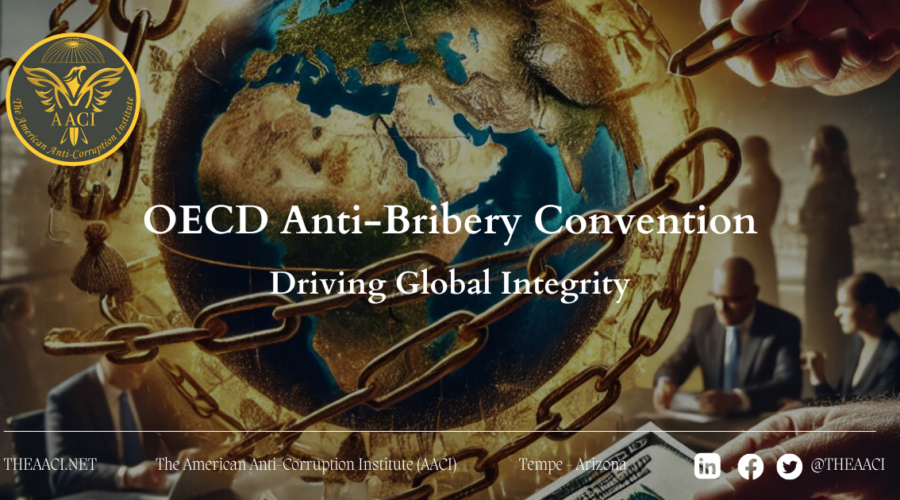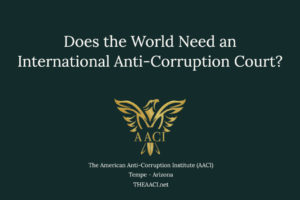Technical Staff
November 27, 2024
5 Key Takeaways:
1. Corruption undermines markets and governance: Bribery distorts competition, erodes trust, and weakens public institutions.
2. A shared global commitment: The OECD Anti-Bribery Convention unites nations to combat bribery in international business transactions.
3. Practical tools for prevention: The Convention provides actionable frameworks for companies and governments to prevent and detect bribery.
4. Legal and reputational risks: Non-compliance with the Convention’s standards can result in hefty fines, reputational damage, and loss of market access.
5. A call to leadership: Decision-makers are key to implementing effective anti-bribery measures and ensuring their organizations lead with integrity.
The Challenge of Bribery
Bribery in international business transactions is a silent predator, stripping countries of their resources, creating unfair advantages, and fostering economic inequality. For businesses, engaging in bribery not only invites legal consequences but also damages trust and credibility with stakeholders. For governments, tolerating bribery weakens governance, fuels public dissatisfaction, and impedes sustainable development.
To tackle this global menace, the OECD Anti-Bribery Convention sets the standard for preventing, detecting, and prosecuting foreign bribery. Signed by 46 countries, including the most significant global exporters, this legally binding instrument has become a cornerstone for ethical international business practices.
Why Decision-Makers Should Take Action
Implementing the OECD Anti-Bribery Convention is not just a compliance exercise—it’s a strategic advantage. Here’s why:
1. Strengthened Governance: By adopting the Convention’s standards, governments can build more transparent and accountable institutions, fostering trust and attracting investments.
2. Enhanced Corporate Resilience: Businesses prioritizing anti-bribery measures minimize operational risks, avoid legal penalties, and enhance their reputations.
3. Level Playing Field: The Convention ensures fair competition, benefiting companies that refuse to engage in unethical practices.
4. Global Alignment: As an international benchmark, the Convention helps align corporate and governmental policies with global best practices, opening doors to partnerships and collaborations.
Simple Actions for Leaders
For Governments:
– Strengthen anti-corruption laws and enforcement mechanisms.
– Provide adequate resources to investigative agencies.
– Ensure whistleblowers are protected and incentivized.
For Businesses:
– Establish robust anti-bribery policies and training programs.
– Conduct thorough due diligence on business partners.
– Invest in monitoring systems to detect and address misconduct.
A Call to Action
The time to act is now. Decision-makers in both the public and private sectors must embrace the OECD Anti-Bribery Convention not as a compliance burden but as an opportunity to lead with integrity.
Failing to address bribery is no longer an option in a globally interconnected world where scrutiny is sharper, and accountability is non-negotiable. Will your organization be remembered as a pioneer of transparency and ethical leadership—or as a cautionary tale of lost opportunities and compromised values?
The choice is clear. Implementing the OECD Anti-Bribery Convention isn’t just good policy—it’s a smart investment in a future where integrity drives progress. Lead the way.











































